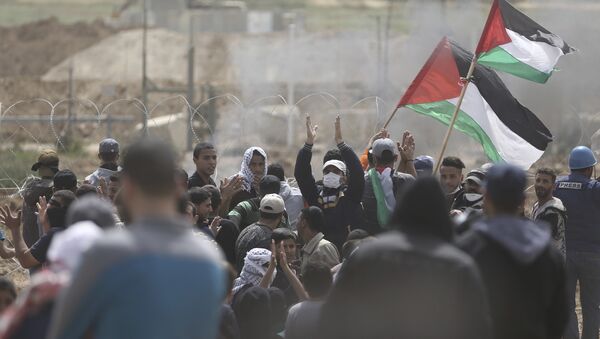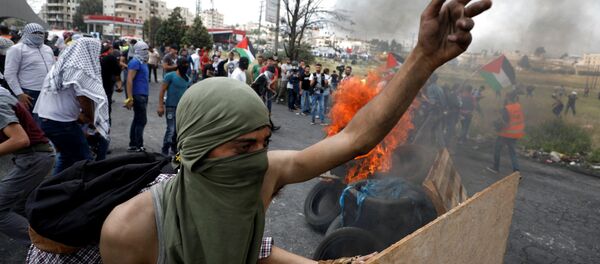Friday will mark 72 years since the Israeli declaration of independence in 1948. Palestinians call this day the Nakba, which translates as 'catastrophe' in English, a day when they remember the displacement of Palestinians that accompanied the establishment of Israel's statehood.
The war that followed shortly after the announcement led to an exodus of many Palestinians, whose population back then stood at approximately one and a half million people. Many fled fearing the battles and potential Jewish atrocities; others were allegedly expelled from their lands as they presented a threat to the new Jewish owners.
Although the number of Palestinian refugees is widely disputed, at least 600 thousand people are estimated to have been uprooted from their homes due to the raging war. More than one fifth of them left the newly established state altogether, immigrating to such countries as Lebanon, Syria, Egypt and Iraq.
Fleeing for Their Lives
More than 200 thousand fled the conflict internally, moving with their families to the West Bank. Others -- between 160 thousand and 190 thousand -- opted for the Gaza Strip. Israel didn't establish a presence in these regions until 1967.
Suleiman Abu Namous, a 110-year-old Palestinian from the Jabalia refugee camp, considered one of the biggest in the Strip, was one of them.
Born in 1910 in the southern city of Beer Sheba, where his family owned 25 dunams (more than six acres) of agricultural land, Abu Namous decided to flee as Israeli forces launched an offensive on the city in a bid to open a corridor from the Negev desert to the rest of Israel and in an attempt to disconnect the Egyptian army from its eastern wing.
"Several people from my family were killed as Israeli forces bombarded the town so my family decided to flee. We were travelling for four days on donkeys and camels until we arrived at Beit Hanoun in the northern part of the Gaza Strip, where we lived for three weeks until we moved to the Jabalia camp," he recalls.
In Jabalia, he has been reliant on donations and the help of UNRWA, a United Nations agency that deals with Palestinian refugees and that provides them with housing and supplies three times a year.
Remembering Better Times
Now living in severe poverty, Abu Namous remembers the days when life was abundant and talks about that abundance with pain.
"My family had lands and a big farm that was prepared for harvesting when the battles erupted. Fleeing and leaving everything behind caused big financial losses from which we have never been able to recover."
Abu Namous is not alone. According to estimates, the value of Palestinian property lost in 1947 to 1948 stands at $57.8 billion (in 1998 dollars). To date, Israel hasn't compensated Palestinians for their loss.
"In 1975, during one of the times that I visited Beersheba while working in Israel, I was curious to see what was left of my property. Nothing resembled what we had left behind. Israelis build a kibbutz on my land and Palestinian farmers from my family were replaced with Jewish ones," Abu Namous said.
No Going Back?
After the outbreak of the First Intifada in 1987, Israel tightened its control over territories with large Palestinian populations, revoking general exit orders that would permit Palestinians to move freely between Gaza, Israel and the West Bank and replacing them with individual ones that required paperwork and consumed time.
But he is not ready to give up. "I teach the younger generation that they must do everything in their power to restore what once belonged to us. It might take a lot of years but I am hopeful that the day will come."



